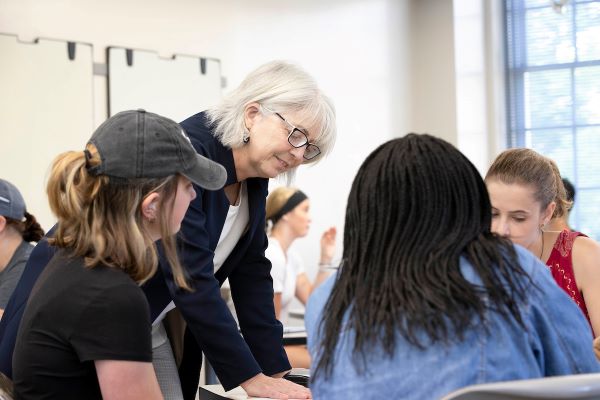
Characteristics of an Honors Course
"Honors education is characterized by in-class and extracurricular activities that are measurably broader, deeper, or more complex than comparable learning experiences typically found at institutions of higher education. Honors experiences include a distinctive learner-directed environment and philosophy, provide opportunities that are appropriately tailored to fit the institution's culture and mission, and frequently occur within a close community of students and faculty." – National Collegiate Honors Council (NCHC), "Definition of Honors Education," 2019.
Honors students are encouraged to take initiative in their learning. They are given a variety of opportunities to become active participants in the exploration and application of course material. With activities such as data collection and analyses, critiquing various sources of information, leading class discussions, and peer editing work, faculty allow for honors students, individually and collectively, to intensively explore ideas, topics, and material throughout the semester. Student-directed learning contributes to academic competence and intellectual curiosity, engaging in projects that are both challenging and rewarding as they are on the path to becoming critical thinkers and active learners.
Contact Honors
All Miami faculty with an interest in teaching an Honors course with these characteristics should consult the Teach in Honors page for more information.